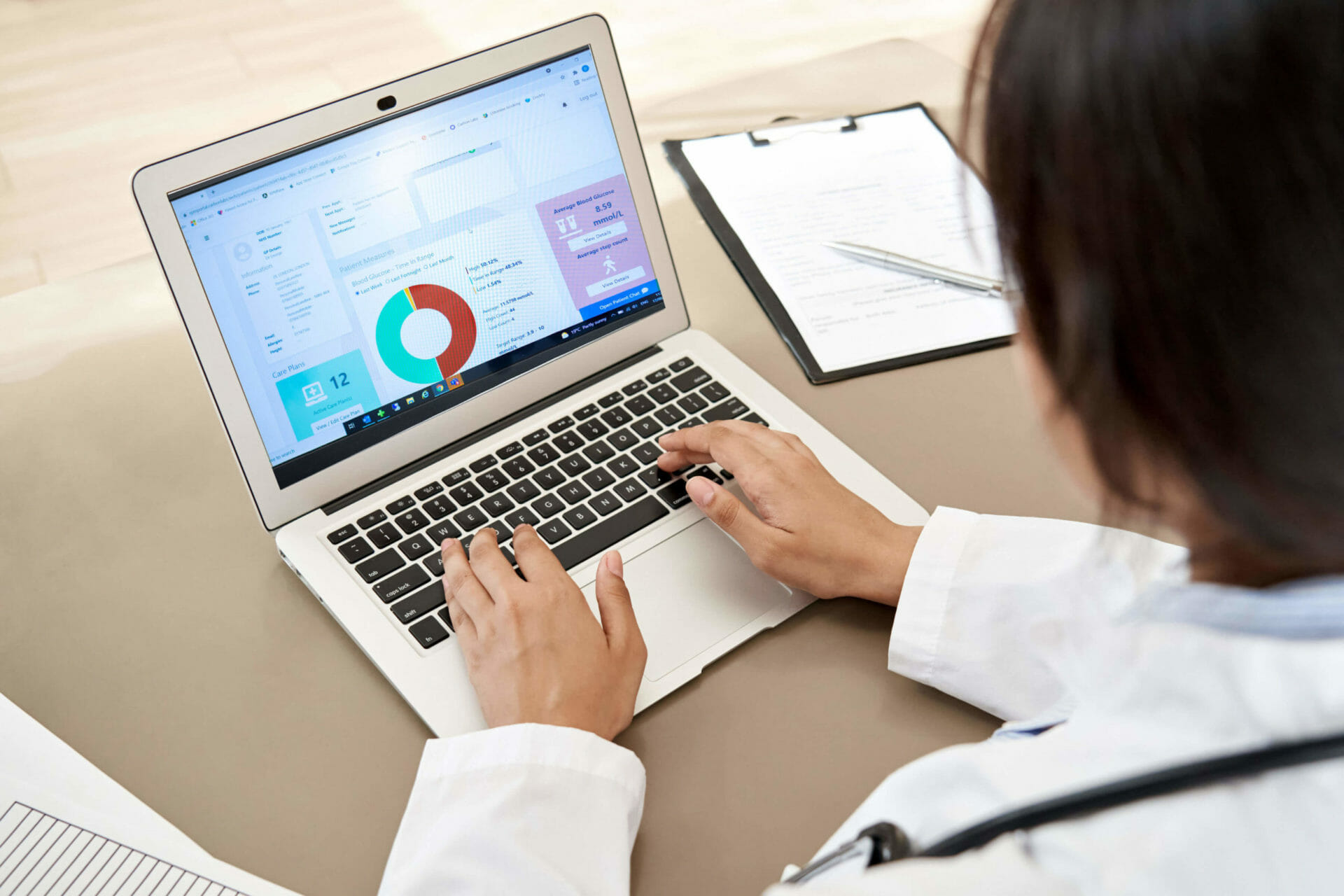Eye damage (diabetic retinopathy)
Diagnosing Diabetic Retinopathy at London Diabetes Centre
Over time, diabetes can damage the eyes and put your vision at risk. Regular eye screening is an essential part of good diabetes care. The London Diabetes Centre offers a cutting-edge eye-screening service, led by world-leading ophthalmologists and diabetologists.
Effective eye screening can help identify eye disease early, so that treatment can be initiated and disease progression can be prevented. The London Diabetes Centre provides a comprehensive package of care that extends far beyond the standard NHS service, to help diagnose diabetic eye-disease at an early stage and protect your eyesight.
What is retinopathy?
Retinopathy is an eye disease that can develop in diabetes, particularly when the condition is poorly controlled. The tiny blood vessels supplying the back of the eye become progressively damaged and can bleed. Without prompt and effective treatment, retinopathy can cause visual disturbance, blurring and blindness.
In the early stages, retinopathy doesn’t affect vision or show any symptoms. The London Diabetes Centre offers regular eye screening by leading experts, so that diabetic eye disease can be picked up before it progresses. Eye screening is important for people with type 1 and type 2 diabetes because identifying and treating retinopathy at this early stage can prevent damage and protect your vision.
Retinopathy screening at the London Diabetes Centre
Eye screening can identify serious eye problems before they impair your vision. All people with diabetes should have screening annually, however, if you have developed retinopathy or other long-term complications of diabetes, your consultant may recommend more frequent check-ups.
The London Diabetes Centre is equipped with the very latest technology for accurately diagnosing eye disease. The clinic offers a comprehensive eye screening package to identify retinopathy, maculopathy and other eye pathology.
At your appointment, your specialist will examine the back of the eye using an ophthalmoscope. Drops are applied to open up the pupils and make it easier to inspect the retina. These can affect your vision for up to six hours, so it’s important to bring sunglasses to protect your eyes and come with a friend or family member, who can escort you home.
A member of the diabetes team will photograph the back of the retina. You will notice flashes of light during the procedure, but the camera does not touch your eye. The screening process is quick, simple and pain free.
Tests include:
A visual acuity test is an eye examination that checks how well you see the details of a letter or symbol from a specific distance.
People with diabetes are at increased risk of glaucoma. The specialist team at the London Diabetes Centre use Tonometry to measure the fluid pressure inside the eye and screen for glaucoma.
Photography of the back of the eye can identify retinopathy and monitor the progression of the disease.
Expert analysis and treatment planning
At the London Diabetes Centre, the screening results and fundus photographs are reviewed by an experienced consultant ophthalmologist for reporting. Patients can be alerted immediately if there is an abnormality and immediate arrangements made for specialist review and treatment with a consultant on the same day. An appointment will be made to take you through the results. Your consultant will take time to discuss the screening findings and develop a bespoke treatment plan to treat any retinopathy.
Retinopathy prevention with the London Diabetes Centre
The best way to prevent retinopathy and other long-term complications of diabetes is to carefully control blood glucose and blood pressure levels. Eating a healthy diet, living an active life, monitoring blood sugar levels and taking the right treatment can help reduce the risk of damage to the small blood vessels at the back of the eye.
The multidisciplinary diabetes team at the London Diabetes Centre are leaders in modern diabetes care. They will work with you to improve your diabetes control and prevent retinopathy. This can include:
Support Plans
Second opinion
Diabetes risk assessment
London Diabetes Centre premium package
London Diabetes Centre protocol
Looking to speak with a member of our team?

Carol Willis - Diabetes Clinic Facilitator
If you couldn't find what you were looking for today, feel free to give us a call at 0800 048 3330 and ask Carol and her team.
Alternatively, just fill in this form and someone will get in touch with you promptly.
By using this form, you are consenting to the storage and handling of the data contained in the form by our team.




